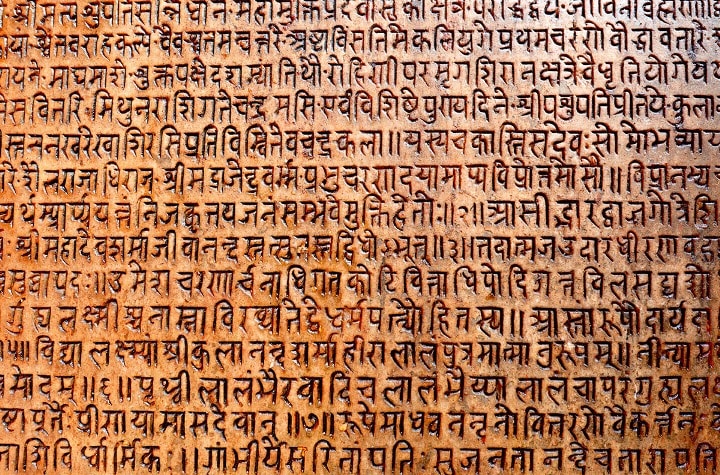Life
Hey Ram

Mispronouncing Indian Words. Is it Raamaa or Raama
Now that the season for the Swamis to invade the country is upon us, I am again consumed by the mispronunciations of Hindi, Sanskrit and other Indian language words by Indians when they speak in English.
We have a terrible habit of Anglicizing the sounds of Indian words as soon as we start speaking in English. Krishna becomes Krishnaa instead of Krishna (?????) and Rama becomes Raamaa instead of Raama (???). Except for a few exceptions and regional modifications to sounds of various consonants, we are pretty good when we speak in Hindi or other regional languages. It is only when we start speaking English that we suddenly forget the correct pronunciations and Anglicize the Hindi and other regional language words.
Mispronouncing the “A” at the end of Indian words, with the long sound of ‘A’ instead of the full sound of the consonant, is not a new phenomenon. As far back as the 1970s, the India Tourism Development Corporation had opened a brand new 5-star hotel in Delhi called Hotel Ashoka. In Roman Hindi, the vowel “A” is added as a consonant modifier to the letter K to obtain the full sound of the consonant (?). If the consonent modifier vowel “A” is not added the consonent K has a half sound as in (??) (Remember the “Halant” {?????} in Hindi, Sanskrit and other Indian languages?)
Despite ITDC’s best efforts by running advertising campaigns with the name of the hotel written in Hindi and English to emphasize the full sound of the consonant “K,” the name stuck as Hotel Ashokaa, instead of Hotel Ashoka, when pronounced in English. The situation deteriorated to the extent that even in Hindi people started calling it ????? ???? and not ???? ????. ITDC finally dropped the consonant modifier “A” and changed the spelling to Hotel Ashok.
A bit of history before we proceed further. The British created Roman Hindi during their occupation of India. The authors of the hybrid language must have been very knowledgeable in English, Hindi, linguistics, lexicography, pronunciations and related subjects. They knew that the English alphabet consonants did not have a full sound, which was necessary to pronounce Hindi words. Hence “A” or “E,” as consonant modifiers, were added to the words wherever needed.
However, the majority of the actual readers and speakers of Roman Hindi (principally lower level officials deputed to India) were not as informed as the creators of this new written language. And it is they who, I believe, started this tradition of adding the long sound of “A” to the ends of all words that ended in an “A.”
Indians, in our eagerness in copying everything British, continued the practice when speaking in English. The situation has worsened over time. All the Swamis have this problem of mispronouncing Sanskrit and Hindi words. They will give a lecture on Vedaantaa (???????) and not on Vedaanta (??????), or you may attend a lecture on Raamaayanaa (???????) instead of Raamaayana (??????).
You will learn of Raagaa and Deveshaa (???? ?? ?????? not ??? ?? ?????). You may also learn about Hindu Dharmaa and learn a few Shlokaas. And of course everyone goes to learn Yogaa. (Incidentally, Yoga means a “a combination of or joining of things,” so one is actually learning Yogaasna {??????}, a combination of exercise poses, and not Yoga {???}). Even the Swamijis names are mispronounced. Gopalananda (???????? or ?????????) becomes Gopaalaanandaa (??????????), or Shardananda (???????? or ?????????) becomes Shardanandaa (????????? or ??????????), etc. I have also heard people discussing Swaragaa (??????) and Narakaa (????) with the Swamijis.
You Tube is replete with videos by so-called experts in Indian music discussing or presenting various Raagaas and Taalaas instead of Raags and Taals. Examples of such mispronunciations are too numerous to list them all here.
The worst culprits are the English news reporters on Indian and foreign TV channels in India as well in the United States. Especially in India, they speak with pseudo British or American accents and mispronounce Indian words. They take pains to learn French, German, and other language pronunciations, but when it comes to Indian words, they butcher the pronunciations by saying Mumbaayee instead of Mumbai, Shivaa instead of Shiva, Krishnaa instead of Krishna, Nirbhaayaa instead of Nirbhayaa, etc.
In recent years, some people have attempted to rediscover Roman Hindi writing and have suggested several different spellings for the same words. For example, I have seen Rama spelled as Raam, Ram, Raama, etc. For Krishna, suggested spellings range from Krishan to Krishn.
I am neither a linguist, nor an expert in phonetics. But mispronounced words do hurt my ears. The experts should finalize how to correctly write Indian words in the English script. I suggest that one of the several India Chairs founded at various U.S. universities take up the subject of Roman English and come up with a better way of writing Indian words in English script, so that they are easy to pronounce and write on standard “qwerty” keyboard. No diacritical marks, no bars on top of letters, no special letters, just simple English letters.
In the interim, we should take it upon ourselves as Indians to pronounce the Indian words correctly and properly as if we were speaking in our Indian languages, even when we are speaking in English. Believe me, if we try sincerely, Americans, Britishers and others will learn to pronounce them correctly as well, seeing the pains we are taking to pronounce them correctly in the first place. If Peking can be corrected to Beijing, surely Indian words can be pronounced properly as well.

You must be logged in to post a comment Login